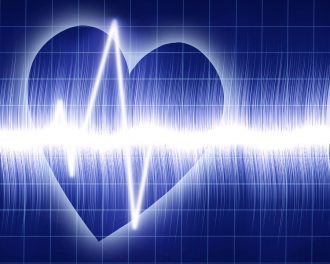Guest writer for Wake Up World
“Listen to your heart.” How many times have you heard this phrase in the course of your lifetime?
In mine, I have encountered it countless times. It’s advice I have been given, it’s a message I like to share, and despite its timelessness, is a phrase that I find often gets ignored. So why, since the beginning of time, have we been given this instruction? And why do we so easily file these four words of wisdom away as something to eventually consider instead of something to do, or at very least, be actively open and about?
Over the course of my life, having had many experiences filing away this advice along with the stirrings of my heart, I have discovered that when it comes to the heart, what gets ignored always reappears in ways that are really not the most comfortable. For me it has reappeared in the form of depression, the only way my heart was able to get me to see I was following the wrong career path; as burnout-the only way my heart was able to wake me up to the fact that I wasn’t taking good enough care of myself; as a physical illness, with no apparent medical diagnosis, which taught me about a trauma I was neglecting to work through and belief systems that were no longer serving me.
[pro_ad_display_adzone id=”110028″]
Our hearts wake us up in some ways that we prefer not to experience but if we work on listening to it, instead of waiting to be woken up through some uncomfortable experience then well, we can save a lot of time and pain. Here’s the science behind our heart’s intelligence for the rational part of our brain that is afraid to trust the unknown and a few guidelines to begin practicing, because, like any muscle that you want to build, it takes some discipline and effort.
The Science Behind Our Heart’s Intelligence
The heart is an organ of enormous electro-magnetic intelligence. Sixty to 65 percent of the heart is composed of neuron cells (not muscle cells) and like the brain generates a very powerful electromagnetic field that permeates every cell in the body — but is about 60 times greater in amplitude than the brain!! An electromagnetic field is essentially a broadcasting device so to rephrase that last sentence: the heart’s ability to broadcast messages is 60 times greater in amplitude than the brain! The heart is also the first organ to function after conception whereas the brain begins to start operating after 90 days.
So our heart, as you can see, is a very powerful messenger. It speaks a language similar to the brain but uses a more sophisticated inner guidance system based on both feeling and thinking. The brain with its hallmark attribute of overthinking tends to want to control and play things safe. In the case of our brain, this is why we get messages that are not always in our best interest. The brain says: “Follow the map you were given, it’s a sure bet! The heart says: “Take this route! You don’t know it yet but it will lead you to a new and more fulfilling life!”
Now, this doesn’t mean we should dismiss the messages coming from our brain. Our brain is a master at synthesizing information — information that becomes the books we read that change our lives and the words we hear from our loved ones that keep us going. Our brain helps create order when our emotions threaten to sweep us away and gives us the constructs we use to navigate the world in a safe manner. Needless to say, it’s an important vehicle.
Unfortunately though, it’s an overused one and this is why we often feel exhausted. Our brains are on overdrive trying to do all of our problem solving. Our heart — always present, always ready for our arrival even if difficult to locate at times — is where the fuel lies and where our whole body, brain included, can take a break to recharge and get some wise direction on how to navigate the path ahead.
Discerning Heart and Brain Signals
So, how do we know who’s who? How can we tell when we are being detoured by our fears caught up in brain-lock mode versus when our heart is speaking to move us into a new, more fulfilling life direction?
Heart Signals
When your heart is speaking you feel it all over your body. Heart messages feel open and expansive. They jolt you. They make your blood flow and your body pulse. Your vision gets clear, your sensory perceptions heighten and become more acute. The answers that come to you feel “ready-made”, channeled and handed down from a higher place of knowing, not dissected or chewed up. In other words, it’s a full body experience.
Brain Signals
When a message is coming strictly from your head, that’s pretty much the only place you will feel it. Irrational and overanalyzed brain messages usually coming from fear based belief systems and tend to feel constricting. When the brain takes over, we feel obsessive, our muscles tense, our breath shortens. We get anxious, we feel tired. We feel disconnected. There’s a general feeling that something is off.
Techniques to Fine Tune Your Listening Skills
Talk to yourself
To test this theory out, tell yourself something you know to be absolutely true about yourself and see where you feel this in your body. After you do that, tell yourself something that you know to be absolutely false and see where you feel this in your body. You can also practice this with a decision you made that you knew was right for you and a decision you knew that wasn’t. Once you get a sense of this, you can start asking yourself all kinds of questions. As you do this over and over, you begin to become fine tuned to your bodies’ inner guidance system based on the signals it gives you.
[pro_ad_display_adzone id=”110030″]
Keep a journal
Another powerful technique is to journal about a question you have. Ask the question and first answer from your head. “Head, what do you think about this? Then answer in first person from your brain’s perspective. Next ask, “Heart, what do you have to say?” Then, record the response. Take note of physical sensations and any images that appear as well.
Writing about what you notice in your body helps you get a full sense of your own system. Recording heart-based responses versus fear-based responses also helps your body to register them more concretely which will in turn help this navigational tool imprint in your body more quickly. Each person’s intuition speaks differently even though the general principles discussed above apply to all so take the time to get to know your personal navigation system works.
Focus on the breath
Lastly, there has been a lot of research showing that one important way the heart speaks to and influences the brain is when the heart is “coherent” meaning it is generating a stable pattern in its rhythm. When this is so, the body and brain begin to experience many benefits some of which are greater mental clarity and intuitive ability.
An exercise for helping your heart become more coherent is to focus on your breathing. Take at least a minute or two to do this. First ask your mind and heart to join forces. You can imagine a gold channel of light connecting the two feeling the flow of energy between them. Then take deep breathes, holding your inhale for four counts and breathing out for four counts. Do this ten times and then practice the exercises above.
To end, I offer a sentiment from the wise Robert Frost from his poem, “The Road Not Taken”.
“Two roads diverged in a wood, and I… took the one less traveled by, and that has made all the difference.”
Further reference:
Also by this author:
About the author:
 Danielle Benvenuto is a psychotherapist and energy healer who specializes in psychoanalysis, energy work, and mindfulness meditation making the work she does integrative in nature. Tuning into the body, nature, dreams and the healing power of sound and visualization are important elements in her work as is working directly with the breath to heal the mind and body. She holds workshops in NYC and internationally on topics such as integrating mindfulness with psychotherapy, using imagery to transform trauma, and the art of manifestation. She is also a guest lecturer at NYU and has written articles on various topics.
Danielle Benvenuto is a psychotherapist and energy healer who specializes in psychoanalysis, energy work, and mindfulness meditation making the work she does integrative in nature. Tuning into the body, nature, dreams and the healing power of sound and visualization are important elements in her work as is working directly with the breath to heal the mind and body. She holds workshops in NYC and internationally on topics such as integrating mindfulness with psychotherapy, using imagery to transform trauma, and the art of manifestation. She is also a guest lecturer at NYU and has written articles on various topics.
To learn more visit her at daniellebenvenuto.com and instagram.com/itisyour_life
[pro_ad_display_adzone id=”110027″]








